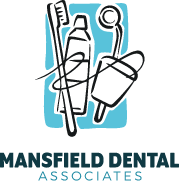People with extreme teeth sensitivity end up having to give up certain foods and drinks because of the discomfort. Sour, sweet, very cold, and very hot foods and beverages can result in a shooting pain going through teeth and gums. The underlying layer of teeth beneath the hard protective layer of tooth enamel is called dentin. If tooth enamel damage, tooth decay, or gum disease occur in someone, dentin holds tubules which lead to the pulp of teeth, allowing sensations to reach the nerves. The result is tooth sensitivity. Mansfield dentists, Dr. Jones and Dr. Harris, will highlight the results of a research study that focuses on eradicating tooth sensitivity.
Prevalence of Tooth Sensitivity
Tooth enamel damage and gum disease are very common. Whether you’re an avid soda drinker, don’t brush and floss diligently and regularly, eat too much sugar and high-carbohydrate foods, or simply have a genetic propensity, cavities and periodontitis are a common factor in the dental health of Americans. Scientists Quan-Li Li, Chun Hung Chu, along with a team of researchers, noted that as many as 3 out of 4 people have tooth sensitivity. Toothpastes and sugar-free gums that claim to reduce sensitivity are on the market, but the results aren’t always amazing. Li, Chu, and their colleagues have focused their research on discovering a substance that can rebuild tooth enamel and dentin at the same time.
Multi-pronged Remineralization
Quan-Li Li and Chun Hung Chu focused on nature to seek a remedy that could prevent the tooth sensitivity which afflicts millions of people around the world. The (more…)





Recent Comments